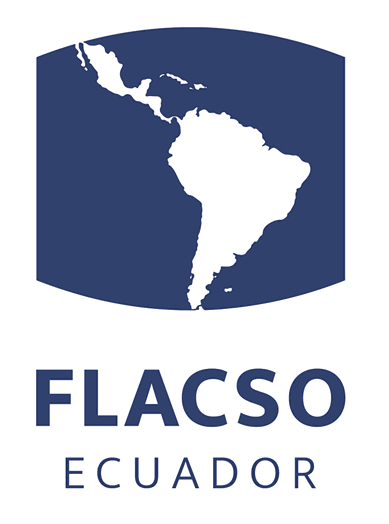Por favor, use este identificador para citar o enlazar este ítem:
http://hdl.handle.net/10469/15583| Tipo de Material: | Tesis doctoral |
| Título : | Sujetos creyentes e identidades políticas : un estudio sobre espacios eclesiales pentecostales en Argentina como comunidades políticas |
| Autor : | Panotto, Nicolás Esteban |
| Asesor de Tesis: | Ceriani Cernadas, César (Dir.) |
| Fecha de Publicación : | mar-2019 |
| Ciudad: Editorial : | Buenos Aires : FLACSO. Sede Académica Argentina |
| Cita Sugerida : | Panotto, Nicolás Esteban (2019). Sujetos creyentes e identidades políticas : un estudio sobre espacios eclesiales pentecostales en Argentina como comunidades políticas. Tesis de Doctorado. FLACSO. Sede Académica Argentina, Buenos Aires. |
| Descriptores / Subjects : | PENTECOSTALISMO IDENTIDAD POLÍTICA SECULARIZACIÓN CREENCIA CARISMA LIDERAZGO ETNOGRAFÍA ARGENTINA BUENOS AIRES [CIUDAD] |
| Paginación: | 258 h. |
| Resumen / Abstract : | La presente tesis se focaliza en el estudio de la relación entre cosmovisiones religiosas y construcción de identificaciones socio-políticas,a partir de una discusión entre diversos marcos teóricos y propuestas epistémicas, tanto en el campo del estudio sobre la relación entre religión y política como también del abordaje del campo evangélico en general y el pentecostalismo en particular, especialmente desu incidencia social. Para ello, se articula un diálogo entre teorías filosóficas y antropológicas en torno al concepto de identidad, como también debates contemporáneos sobre la postsecularización y estudios en ciencias de la religión, focalizados en la construcción de procesos de identificación religiosa. Unido a esto, la tesis implica un el abordaje etnográfico de una comunidad cristiana pentecostal de la Ciudad de Buenos Aires, el Centro Cristiano Nueva Vida (CCNV), donde se analizan las diversas áreas de la vida de la iglesia –configuración institucional, estructura del liderazgo, discurso teológico, dinámicas litúrgicas, etc.-para desde allí examinar cómo la comunidad eclesial y cada creyente en particular construyen cosmovisiones socio-políticas a partir de la (re)apropiación de dichos marcos simbólicos yrituales. El principal objetivo es indagar sobre la dimensión política que adquieren dichos elementos propios a la identidad del CCNV desde su especificidad religiosa, es decir, de cómo el sentido de ser cristiano, evangélico y pentecostal sirven al desarrollo deidentificación con ideas y prácticas políticas, tanto a nivel micro (la vida cotidiana de los creyentes y el contexto de la iglesia) como macro (relación con otros agentes sociales, partidos políticos, el Estado, etc.). The present thesis focuses on the study of the relationship between religious cosmovisions and the construction of socio-political identifications,from a discussion between various theoretical frameworks and epistemic proposals, both in the field of study on the relationship between religion and politics as well as the approach of the evangelical field in general and Pentecostalism in particular, especially its social impact. To this end, a dialogue between philosophical and anthropological theories about the concept of identity is articulated, as well as contemporary debates about postsecularization and studies in the sciences of religion, focused on the construction of processes of religious identification. From here, this thesus departs from an ethnographic fieldwork in a Pentecostal Christian community in the City of Buenos Aires, Centro Cristiano Nueva Vida (CCNV), where the various areas of church life are analyzed -institutional configuration, leadership structure, theological discourses, liturgical dynamics, etc.-with the purpose of examining how the ecclesial community and each particular believer develop socio-political worldviews from the (re)appropriation of these symbolic, ritual and cosmovisional frameworks. The main objective is to investigate the political dimension acquired by these elements within the identity of the CCNV from its religious specificity, that is, how the sense of being Christian, evangelical and Pentecostal serve the development of and identification with political ideas and practices, both at a micro (believer’s daily life and the context of the church) and macro level (relationship with other social agents, political parties, the State, etc.). |
| Copyright: | openAccess Atribución-NoComercial-CompartirIgual 3.0 Ecuador |
| URI: | http://hdl.handle.net/10469/15583 |
| Aparece en las colecciones: | Tesis Doctorado Argentina |
Archivos en este ítem:
| Archivo | Descripción | Tamaño | Formato | |
|---|---|---|---|---|
| A-Cubierta-T-2019NEP.jpg | Tesis - portada | 174,82 kB | JPEG |  Visualizar/Abrir |
| TFLACSO-2018NEP.pdf | Tesis - texto completo | 2,13 MB | Adobe PDF |  Visualizar/Abrir |
Este ítem está sujeto a una licencia Attribution NonComercial ShareAlike (CC BY-NC-SA 4.0)
Licencia Creative Commons



